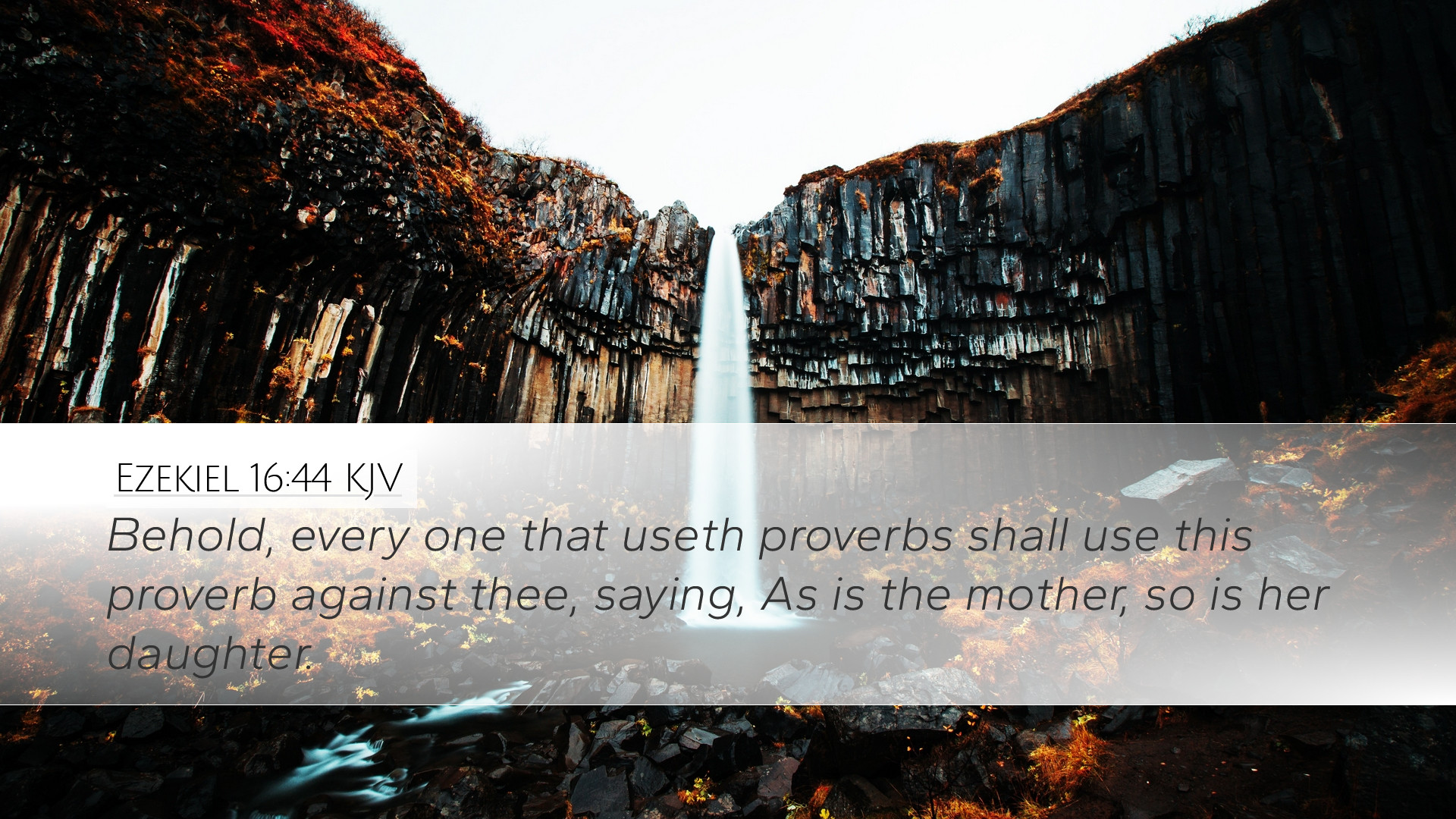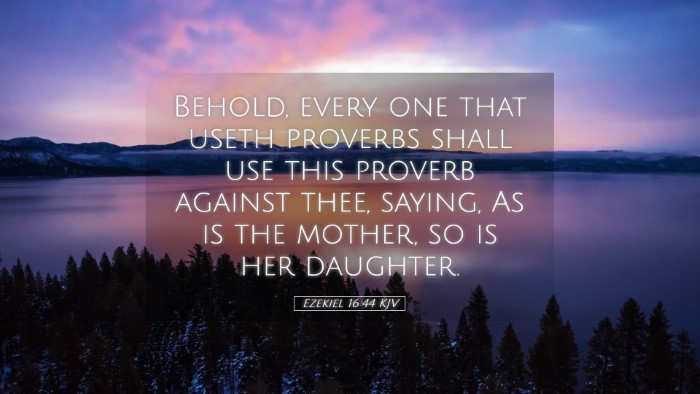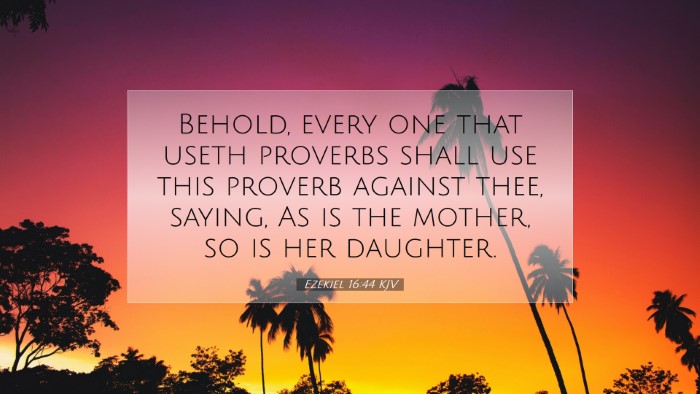Commentary on Ezekiel 16:44
Ezekiel 16:44 reads: "Behold, everyone that useth proverbs shall use this proverb against thee, saying, As is the mother, so is her daughter."
Contextual Outline
- The background of Ezekiel’s prophetic ministry.
- The metaphorical language used throughout the book.
- The significance of mothers and daughters in biblical texts.
Commentary Insights
1. Proverbs and Their Role
As Matthew Henry points out, proverbs in the ancient Near East served to encapsulate wisdom, often conveying moral lessons or truths about human behavior. In this verse, the proverb underscores a collective recognition of the shared characteristics between a mother and her daughter.
Adam Clarke explains that the saying reflects the consequences of a parent’s actions on their offspring, suggesting that behavior is often inherited or mimicked within families. This brings to the forefront the notion of accountability not only for individual actions but also for the cultural and spiritual milieu one inherits.
2. The Identity of 'Mother' and 'Daughter'
In the context of Ezekiel 16, God speaks specifically to Jerusalem as both the mother and the daughter—representative of a larger community and its practices. Albert Barnes elaborates that Jerusalem (the mother) is depicted as a city that, through idolatry and immorality, significantly shapes the character and fate of its inhabitants (the daughters).
This duality emphasizes that the qualities of the mother—whether virtuous or wicked—inevitably influence the offspring, highlighting the interconnectedness of community and identity.
3. Divine Judgment and Human Responsibility
The passage serves as a stark reminder of divine judgment, which Matthew Henry notes is rooted in the moral failings depicted through the cities of Judah. As the proverb suggests, inherent qualities in the mother lead to the replication of sinful patterns in the daughter, leading to judgment.
Clarke cautions that this divine perspective sheds light on the cyclical nature of sin and its ramifications. The indictment is thus not only for the mother (Jerusalem) but also for the subsequent generations who emulate her ways. Such understanding is crucial for pastors and theologians as they seek to explain the relational dynamics of sin and redemption.
4. Theological Reflections
This verse, imbued with metaphorical richness, captures the essence of communal sin. Albert Barnes highlights that spiritual decay often roots itself in corporate practices, and the notion that the 'daughter' reflects the character of the 'mother' serves to challenge modern readers to reflect upon their legacies and spiritual influence.
Henry further posits that the church today must recognize its responsibility in shaping the next generation, transmitting either the truths of the gospel or the corruptions of culture. This verse invites theological reflection on the vital role of mentorship and spiritual parenting within communities of faith.
5. Practical Applications for Today
- Legacy of Leadership: Recognize that the traits of leaders and communities shape the character of future generations.
- Cultivating a Godly Heritage: Strive for practices within church communities that reflect godliness and truth.
- Repentance and Restoration: Encourage both individual and corporate repentance, understanding that healing involves acknowledging past failures.
Conclusion
Ezekiel 16:44 serves both as a warning and a foundation for understanding communal identity. The echoes of the proverb challenge each generation to evaluate its spiritual heritage and prod the church toward fulfilling its role as a mother who nurtures faith and integrity. When examined through historical, theological, and practical lenses, this verse yields profound insights for anyone engaged in pastoral care, theological education, or personal discipleship.


